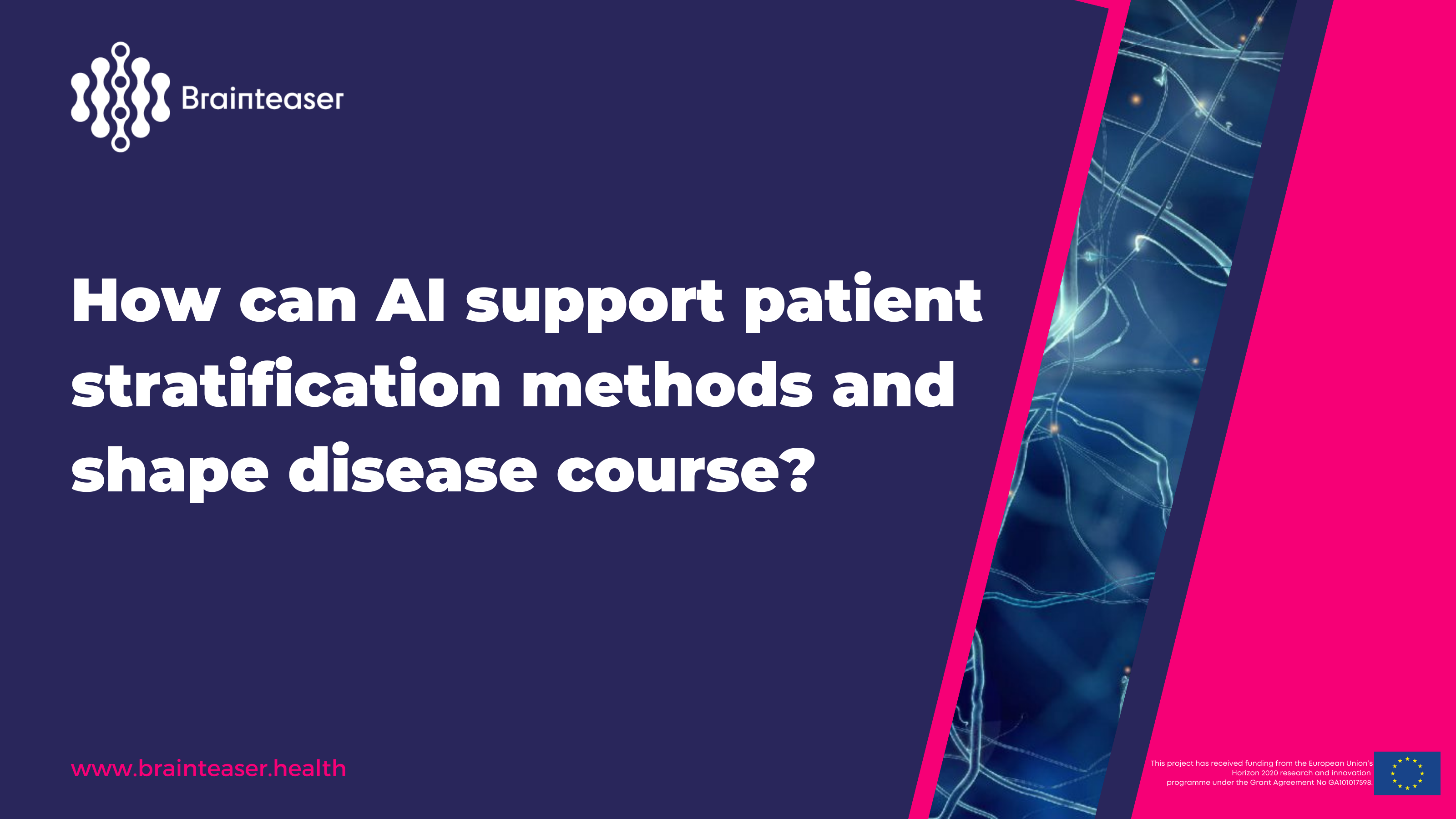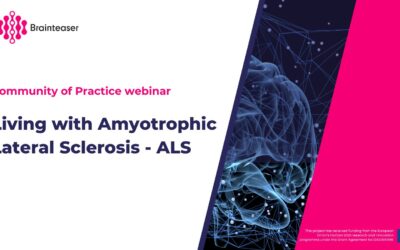The inherent complexity of degenerative neurological diseases, such as amyotrophic lateral sclerosis (ALS) and multiple sclerosis (MS), and the particular requirement for unravelling new biomarkers warrant a novel approach that integrates biological, clinical, environmental and all other potentially relevant data sources. This heterogeneous data would also be crucial to developing advanced descriptive and predictive models that help medical doctors and enable a more personalized approach. Artificial intelligence (AI), specifically, plays a fundamental role in this step through the time-sensitive analysis of such data sources, including those of genotype-phenotype, clinical temporal, and remote patient monitoring.
The importance of AI-based methods is indeed relevant in discovering significant patterns that are usually too complex to be observed manually or through simple automated approaches. Hence, developing AI-based patient stratification methods is integral to deepening our understanding of patient profiles; improving prognosis of disease progression and its evolution patterns; and providing early-risk prediction tools. In turn, we can achieve personalized treatments through targeted therapies, optimize medical interventions to focus on disease-specific progression rates or avoid unnecessary hospitalizations, and estimate the impact of therapy, i.e., the probability of adverse effects or other complications. In addition, AI-based models could support patient healthcare, providing important predictions about therapies and risk factors.
In this respect, by integrating multiple and heterogeneous data, from clinical to environmental, BRAINTEASER aims to develop AI-based models for patient stratification and disease progression for two challenging degenerative neurological diseases, ALS and MS. It will also aim to develop tools for early-risk prediction of disease progression and adverse events. Through identifying patient profiles and integrating different models and tools, BRAINTEASER will contribute to developing personalized approaches that can lead to better patient prognosis and supportive care.




